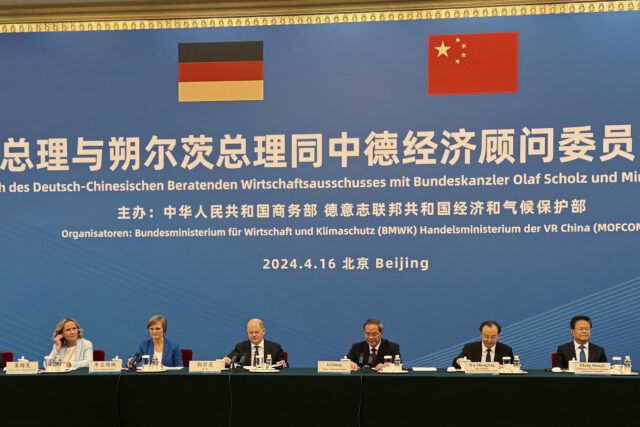In a recent high-level dialogue in Beijing, Chinese Premier Li Qiang and German Chancellor Olaf Scholz emphasised the necessity to bolster economic and trade relations between China and Germany. During their meeting on Tuesday, Premier Li highlighted the deep economic interdependence of the two nations, underscoring the potential for enhanced collaboration.
Chancellor Scholz, on his final day in China, articulated a strong message on international security concerns, particularly urging Chinese influence over Russia to help bring an end to the ongoing conflict in Ukraine. Scholz reported that both he and Chinese President Xi Jinping are in agreement on the critical issue of rejecting attacks on nuclear facilities, a stance that amplifies the call for heightened global security measures.
Scholz appealed to China’s President Xi Jinping about the need for a just peace in Ukraine and an end to the war.
Moreover, the talks between the two leaders yielded significant progress on trade, with China agreeing to open its market to German beef and apple imports while also facilitating the import process for German pork. This development marks a pivotal step in expanding bilateral trade links and diversifying economic exchanges between Germany and China.
Chancellor Scholz also touched on broader European economic strategies, expressing a keen interest in mitigating risks while seeking to deepen and expand economic relationships. This approach reflects a strategic aim to strengthen economic ties, not just with China, but on a global scale, fostering stability and growth in an increasingly interconnected world.
The discussions in Beijing have set a constructive tone for future cooperation, promising a forward path that could benefit both economies amidst global economic uncertainties. More than 5000 German companies are operating in China, which has been Germany’s largest trading partner for many years.
During his visit he was accompanied by a delegation of officials and businessmen and visited Shanghai, Beijing and the megacity of Chongqing, in the south-west.
With Inputs From Reuters





